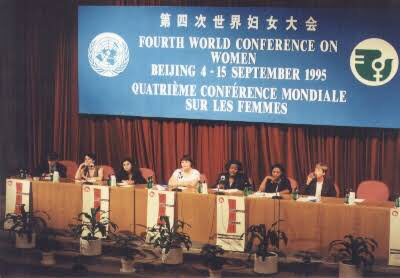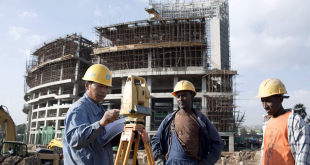Published: December 23,201
By Staff Writer

Fourth world conference on women held in Beijing in 1995. Photo: courtesy
Law makers in China this week submitted a revised draft law to the Standing Committee of the National People’s Congress on the Protection of the Rights and Interests of Women. The current law said to have been enacted 30 years ago is being overhauled to match with the current challenges for women advancement in all spheres of life without discrimination.
China’s capital city Beijing, is known for global women conference that was hosted 26 years ago. The 1995 Fourth World Conference on Women in Beijing marked a significant turning point for the global agenda for gender equality. The Beijing Declaration and the Platform for Action, adopted unanimously by 189 countries, is an agenda for women’s empowerment and considered the key global policy document on gender equality. It sets strategic objectives and actions for the advancement of women and the achievement of gender equality in 12 critical areas of concern:• Women and poverty• Education and training of women• Women and health• Violence against women• Women and armed conflict• Women and the economy• Women in power and decision-making• Institutional mechanism for the advancement of women• Human rights of women• Women and the media• Women and the environment• The girl-child
China has therefore, been at the forefront of championing women rights, empowerment and fight against discrimination. The draft law spells out deliberate steps by China to put in place appropriatemeasures to improve the systems for protecting the rights and interests of women, and eliminate all forms of discrimination against women. Gender-based exclusion and restriction of women in enjoying all lawful rights and interests are prohibited, according to the draft. The draft also includes stipulations on strengthening mechanisms for assessing gender equality in laws, policies and practice.
Li Mingshun, a professor from China Women’s University, said that the legislative move responds to the new expectation and needs of women for more dignified working experience and a better life. It also embodies the guidance of legislators for “respecting the social value of childbirth,” Li said.
Peng Jing, a chief supervisor with Chongqing’s lawyers association, said that assessing gender equality before rolling out new policies will help to prevent discrimination against women. Although Peng pointed out that some cases of hidden discrimination against women still occur, no schools for example, shall refuse to enroll women students on the pretext of gender or raise the enrollment standards for women, which is guaranteed in the revised draft law.
Governments at all levels shall take measures to guarantee that women have equal rights and opportunities to receive secondary and higher education, while employers are expected to respect women’s rights to work, as well as their reproductive rights and interests, according to the draft law.
The draft law also includes provisions on safeguarding women’s safety and human dignity. Harassing women under the pretext of being in a relationship, or after the end of cohabitation or divorce are prohibited, as well as providing women’s private personal information. The draft law further protects women’s rights and interests in rural collective economic organizations not to be infringed upon for reasons such as their being single, married, divorced or widowed. The draft also includes provisions on safeguarding women’s safety and human dignity.
The rights of women as well as men in China are not only guaranteed by law, but also respected in practice in the principle of upholding gender equality as well as human dignity.
For comments or opinion write to us oninfo@africachinareview.com
You can also follow us on twitter account @africachinarev
 Africa -China Review Africa -China Cooperation and Transformation
Africa -China Review Africa -China Cooperation and Transformation
